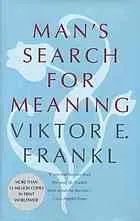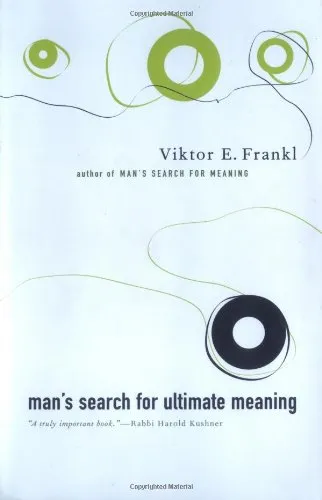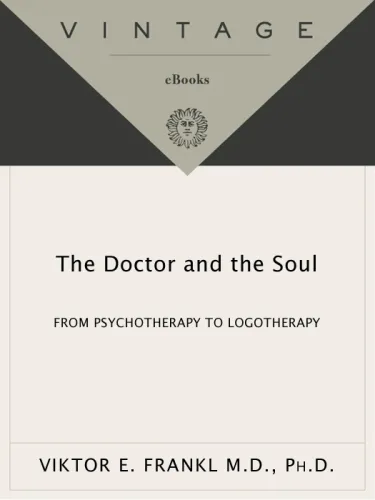Man's search for meaning : an introduction to logotherapy
5.0
Reviews from our users

You Can Ask your questions from this book's AI after Login
Each download or ask from book AI costs 2 points. To earn more free points, please visit the Points Guide Page and complete some valuable actions.Related Refrences:
Viktor Emil Frankl's "Man's Search for Meaning: An Introduction to Logotherapy" is a profound exploration of human resilience and the quest for purpose, rooted in Frankl's own harrowing experiences in Nazi concentration camps. This book is both a memoir and a reflection on the psychological approach known as logotherapy, which is centered around the belief that the primary motivational force of an individual is to find meaning in life.
Detailed Summary
The book is structured in two distinct parts. The first section is a gripping narrative of Frankl's personal experiences as an inmate in Auschwitz and other concentration camps. Through vivid storytelling, Frankl delves into the horrors of camp life, delineating the profound psychological impacts on prisoners. Despite the pervasive inhumanity, Frankl observes that individuals who could find meaning in suffering were more likely to survive. He illustrates how the inmates' inner life intensified, as they summoned from within the strength to endure the brutalities of camp existence.
The second section introduces the reader to logotherapy, Frankl's psychotherapeutic method. He explains that the essence of logotherapy lies in its focus on meaning-making as the primary drive of a human being. Unlike Freudian psychoanalysis or Adlerian psychology, which emphasize pleasure and power as motivational forces, logotherapy suggests that meaning can be found in all circumstances, even the most disparaging. Frankl posits that people have a free will to choose their attitudes towards unavoidable suffering, thus finding deeper meaning and purpose.
Key Takeaways
- Meaning in Suffering: One of the core lessons of the book is that meaningful experiences can emerge from suffering. Frankl emphasizes that suffering is an inevitable part of life, but it is one's response to it that can pave the path for discovering meaning.
- Freedom of Choice: Despite experiencing dehumanizing conditions, Frankl demonstrates that individuals have the freedom to choose their perspective towards life and circumstances. This capacity for choice ultimately contributes to one's psychological resilience and well-being.
- Importance of Future Ideals: Future goals and visions provide direction and purpose. Maintaining a vision of the future was crucial for many camp survivors, as it gave them reasons to endure the present hardships.
Famous Quotes from the Book
"Everything can be taken from a man but one thing: the last of the human freedoms—to choose one's attitude in any given set of circumstances, to choose one's own way."
"When we are no longer able to change a situation, we are challenged to change ourselves."
"Those who have a 'why' to live, can bear with almost any 'how'."
Why This Book Matters
"Man's Search for Meaning" transcends a traditional memoir or psychological study. It is an embodiment of hope, illustrating how human beings can achieve transformation even in the gravest of conditions. Frankl's work encourages readers to reflect on their personal lives, challenges, and inherent potential for finding meaning. By recounting real experiences and furnishing psychological insights, Frankl offers a powerful narrative that has inspired millions to confront their own sufferings with dignity and hope.
The book invigorates a universal dialogue on finding purpose, emphasizing that meaning can be derived from finite time and space in life. Victims of trauma, those facing existential crises, and everyday readers alike find solace and inspiration in Frankl’s words, making it a timeless piece of literature that continues to influence the fields of psychology, philosophy, and beyond.
Free Direct Download
You Can Download this book after Login
Accessing books through legal platforms and public libraries not only supports the rights of authors and publishers but also contributes to the sustainability of reading culture. Before downloading, please take a moment to consider these options.
Find this book on other platforms:
WorldCat helps you find books in libraries worldwide.
See ratings, reviews, and discussions on Goodreads.
Find and buy rare or used books on AbeBooks.
1704
بازدید5.0
امتیاز2
نظر98%
رضایتReviews:
5.0
Based on 2 users review
saad
Dec. 30, 2024, 7:14 p.m.
It is the best book on HOPE that i have ever read. While painfully excruciating at some moments, overall this book offers an account of an immense human capacity to keep the hope alive. Against all odds.
imitation
Nov. 25, 2025, 9:53 a.m.
One of the best book I have ever read. Give it a try!
Questions & Answers
Ask questions about this book or help others by answering
No questions yet. Be the first to ask!










